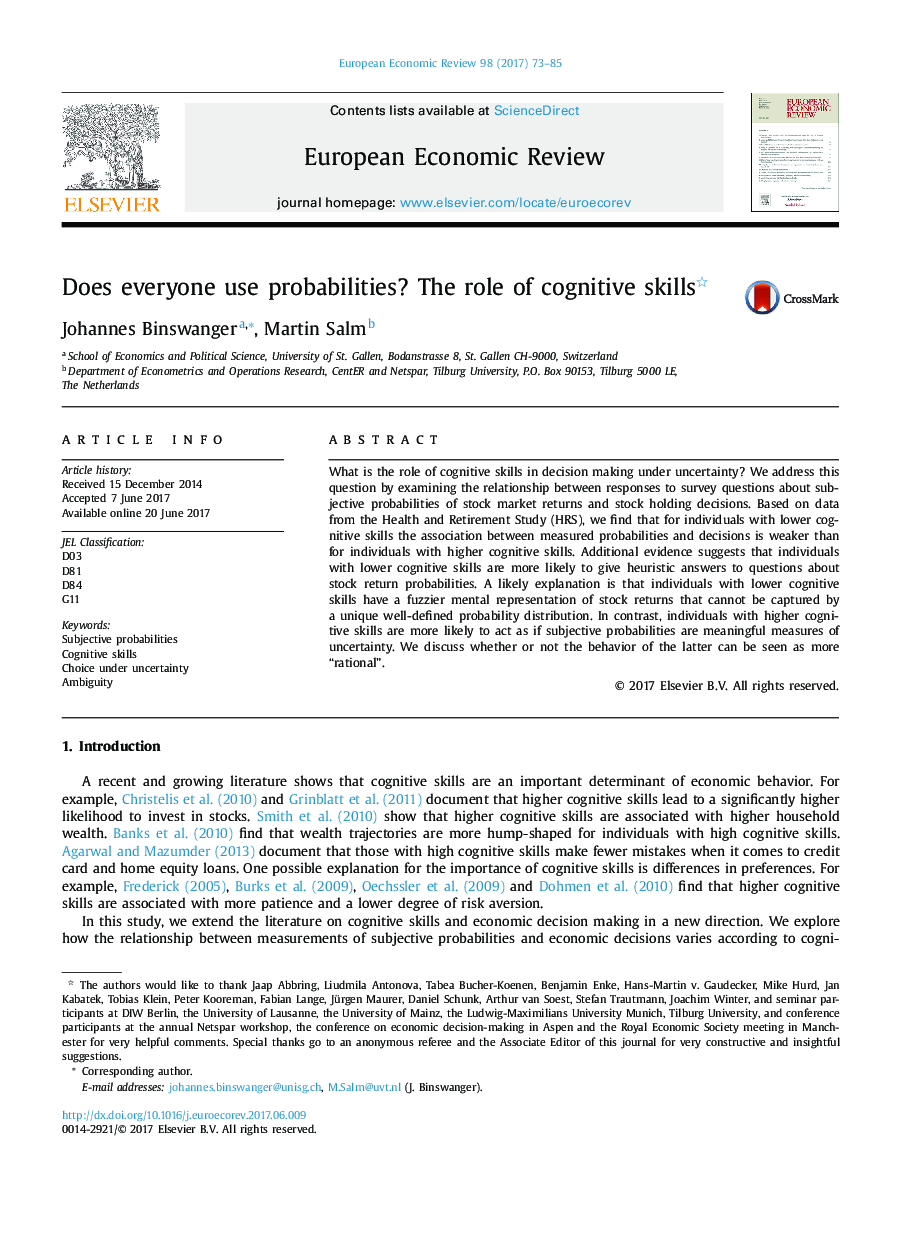| Article ID | Journal | Published Year | Pages | File Type |
|---|---|---|---|---|
| 5066273 | European Economic Review | 2017 | 13 Pages |
What is the role of cognitive skills in decision making under uncertainty? We address this question by examining the relationship between responses to survey questions about subjective probabilities of stock market returns and stock holding decisions. Based on data from the Health and Retirement Study (HRS), we find that for individuals with lower cognitive skills the association between measured probabilities and decisions is weaker than for individuals with higher cognitive skills. Additional evidence suggests that individuals with lower cognitive skills are more likely to give heuristic answers to questions about stock return probabilities. A likely explanation is that individuals with lower cognitive skills have a fuzzier mental representation of stock returns that cannot be captured by a unique well-defined probability distribution. In contrast, individuals with higher cognitive skills are more likely to act as if subjective probabilities are meaningful measures of uncertainty. We discuss whether or not the behavior of the latter can be seen as more “rational”.
